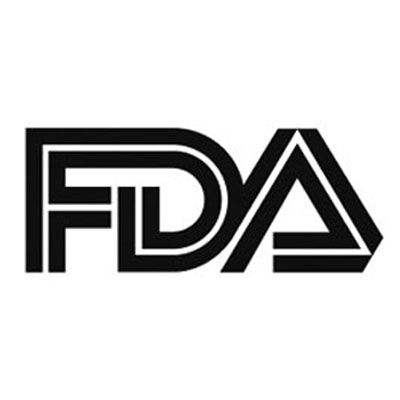FDA Accepts Investigational New Drug Application for NUV-422 as Treatment of High-Grade Gliomas
The FDA has accepted an investigational New Drug application for the investigational CDK2/4/6 inhibitor NUV-422 for the treatment of patients with high-grade gliomas.

The FDA has accepted an investigational New Drug (IND) application for the investigational CDK2/4/6 inhibitor NUV-422 for the treatment of patients with high-grade gliomas, Nuvation Bio, Inc., announced in a press release.
NUV-422 is the first compound, from a pipeline of 6 early-stage oncology programs, to advance into clinical development, as Nuvation Bio will initiate a phase 1/2 study of NUV-422 (NCT04541225) by the first quarter of 2021 and plans to enroll patients with high-grade gliomas to the study.
"The FDA's acceptance of the IND for NUV-422 is an important milestone for Nuvation Bio. We look forward to initiating the phase 1/2 study, our first-in-human trial of a compound derived from our deep pipeline, which includes 6 novel and mechanistically distinct early-stage oncology programs, each targeting multiple difficult-to-treat cancers," said David Hung, MD, founder and chief executive officer of Nuvation Bio, in a statement. "We have advanced NUV-422 through preclinical studies that have informed a robust clinical development plan to treat recurrent high-grade gliomas, including glioblastoma multiforme, which are known to carry significant alterations of CDK function. Based on this data, we believe that NUV-422 has the potential to offer significant clinical benefit to patients with high-grade gliomas, a devastating cancer for which treatment options are very limited."
The dose-escalation and multiple expansion cohort study will enroll 80 adult patients who have relapsed/refractory high-grade gliomas across sites in the United States. The phase 1 dose-escalation portion of the study will evaluate the safety and tolerability of the drug, as well as the pharmacokinetics of oral doses. Topline data from this part of the study are expected in 2022.
In the phase 1 portion, NUV-422 will be administered at escalating dose levels until the maximum tolerated dose is reached, and the phase 2 portion will saw the recommended phase 2 dose of NUV-422. NUV-422 is administered orally by the patients in 28-day cycles until either disease progression, toxicity, withdrawal of consent, or termination of the study.
To be included in the study, patients must have evidence of recurrence after treatment, recovered from toxicity to prior anti-cancer therapy, adequate bone marrow and organ function, and a life expectancy of > 3 months. Patients will be excluded from the study if they have received chemotherapy, radiation, or biological anti-cancer therapy within 14 days for non-myelosuppressive agent or 21 days for myelosuppressive agents prior to enrollment. They also cannot have a history of or current use of bevacizumab as therapy for brain cancer, prior treatment with an investigational agent for any indication within 14 days for non-myelosuppressive or 21 days for myelosuppressive, require systemic corticosteroids > 4 mg/day, or require anti-seizure medications known to be strong inducers of CYP3A4/5 enzymes or has a recent history of uncontrolled/intermittent seizures.
For enrollment to the dose-escalation cohorts, patients must have a Karnofsky Performance Status (KPS) score ≥ 60, while inclusion to the phase 2 expansion cohort 1 requires available tumor tissue, prior therapy with radiation, radiographic evidence of progression and measurable disease, and a KPS score of ≥ 70. The phase 2 expansion cohort 2 requires the same eligibility criteria as the other cohort in this phase of the study, but patients must also be eligible for surgical resection.
Reference
Nuvation bio announces FDA acceptance of investigational new drug (ind) application for NUV-422 for treatment of patients with high-grade gliomas. News Release. October 13, 2020. Accessed October 13, 2020. https://prn.to/3iRjJOZ
FDA Approves FoundationOne CDx as Companion Diagnostic for Tovorafenib in Pediatric Low-Grade Glioma
January 17th 2025FoundationOne CDx is now FDA-approved as the first companion diagnostic for tovorafenib, enabling targeted treatment for relapsed/refractory pediatric low-grade glioma with BRAF mutations or rearrangements.
Read More